Exclusive 3:16 Interview with John Locke
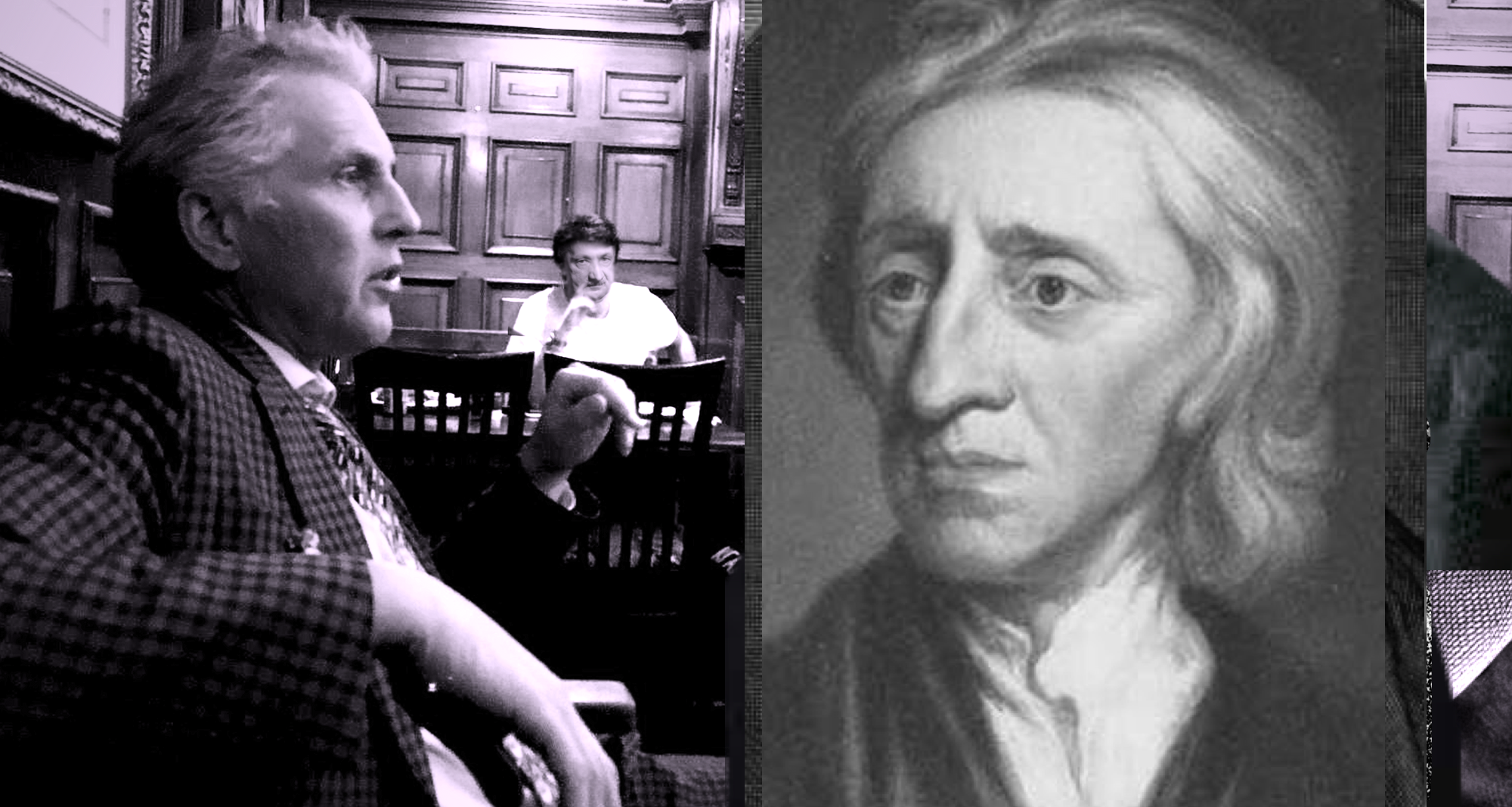
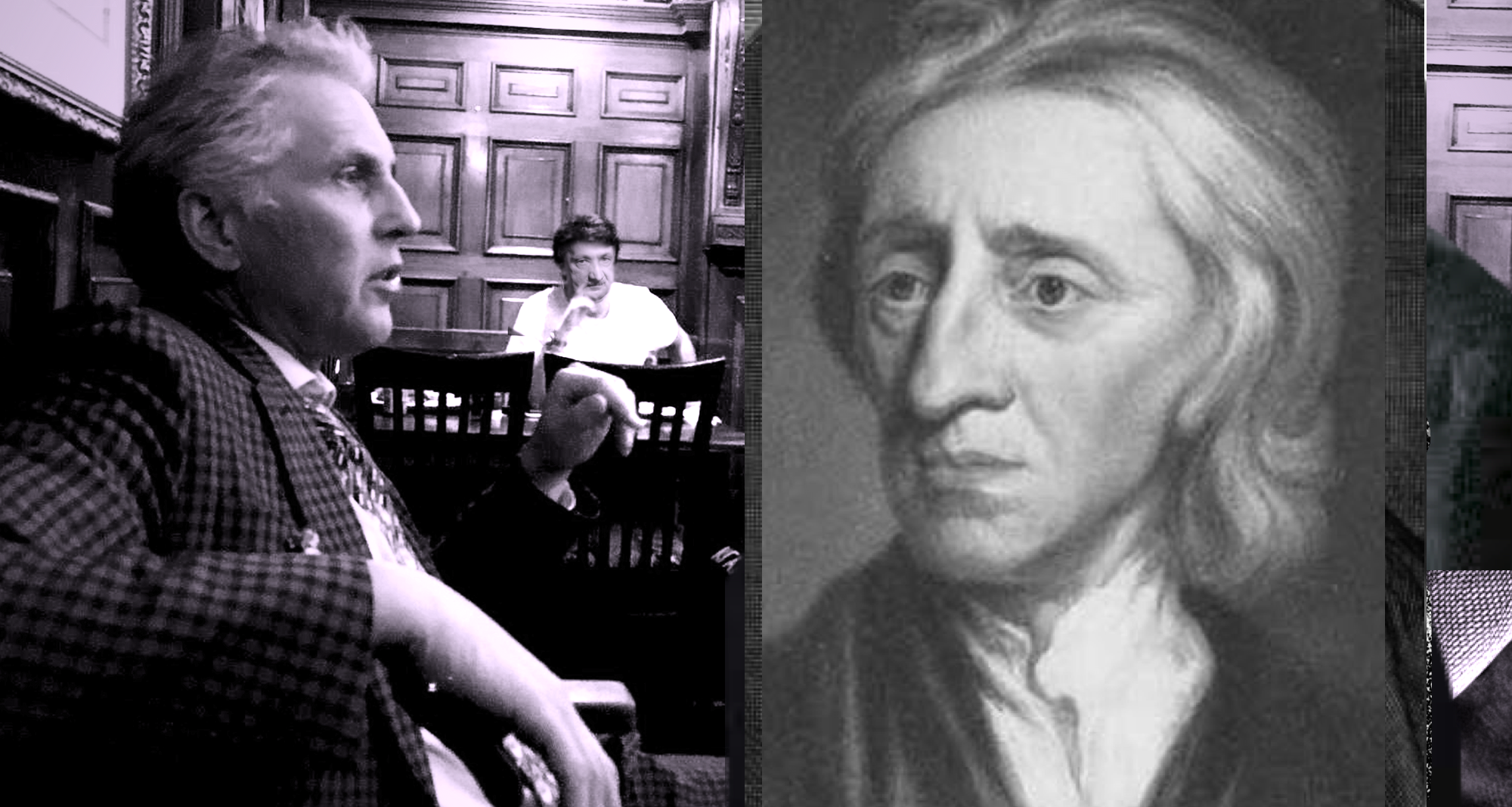
John Locke is a British philosopher, Oxford academic and medical researcher. Locke’s monumental An Essay Concerning Human Understanding is one of the first great defenses of modern empiricism and concerns itself with determining the limits of human understanding in respect to a wide spectrum of topics. It thus tells us in some detail what one can legitimately claim to know and what one cannot. He's a political revolutionary whose cause ultimately triumphed in the Glorious Revolution.
3:16: What made you become a philosopher?
John Locke: My purpose is to inquire into the original, certainty, and extent of human knowledge, together with the grounds and degrees of belief, opinion, and assent; -I shall not at present meddle with the physical consideration of the mind; or trouble myself to examine wherein its essence consists; or by what motions of our spirits or alterations of our bodies we come to have any sensation by our organs, or any ideas in our understandings; and whether those ideas do in their formation, any or all of them, depend on matter or not. These are speculations which, however curious and entertaining, I shall decline, as lying out of my way.
3:16: You’re working alongside some pretty impressive contemporaries who are pushing at the boundaries of knowledge aren’t you? It must be a bit daunting.
JL: The commonwealth of learning is not at this time without master-builders, whose mighty designs, in advancing the sciences, will leave lasting monuments to the admiration of posterity: but everyone must not hope to be a Boyle or a Sydenham; and in an age that produces such masters as the great Huygenius and the incomparable Mr. Newton, with some others of that strain, it is ambition enough to be employed as an under-labourer in clearing the ground a little, and removing some of the rubbish that lies in the way to knowledge.
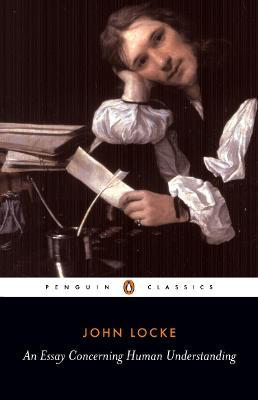
3:16: So one of the things you’re doing is getting us to understand that many claims to knowledge and truth are limited, if not downright impossible?
JL: I shall imagine I have not wholly misemployed myself in the thoughts I shall have on this occasion, if, in this historical, plain method, I can give any account of the ways whereby our understandings come to attain those notions of things we have; consider the fondness and devotion wherewith they are embraced, the resolution and eagerness wherewith they are maintained, and may perhaps have reason to suspect that either there is no such thing as truth at all, or that mankind hath no sufficient means to attain a certain knowledge of it.
3:16: Are strongly held opinions a problem for knowledge?
JL: We should keep a perfect indifference for all opinions, not wish any of them true or try to make them appear so, but, being indifferent, receive and embrace them according as evidence and that alone gives the attestation of truth.
3:16: How will this help?
JL: They that keep their minds indifferent to opinions, to be determined only by evidence, will always find the understanding has perception enough to distinguish between evidence or no evidence, betwixt plain and doubtful; and if they neither give nor refuse their assent but by that measure, they will be safe in the opinions they have.
3:16: So you think we’re too quick to accept opinions without requiring evidence for their truth and indifference gives us the inclination to ask for truth?
JL: Yes Richard, this caution will have this good in it, that it teaches us the necessity of examining more than we do; without which the mind is but a receptacle of inconsistencies, not the storehouse of truths.
3:16: You think our sense faculties are less deceiving than our attitudes?
JL: I do. I do not expect that by this way that men should be perfectly kept from error; that is more than human nature can by any means be advanced to ; I aim at no such unattainable privilege. I am only speaking of what they should do who would deal fairly with their own minds and make a right use of their faculties in the pursuit of truth; we fail them a great deal more than they fail us.
3:16: Do you think it’s because we approach truth badly that we stay in ignorance – it’s not our abilities but our willingness to think well that’s the heart of the problem?
JL: Quite Richard. It is mismanagement more than want of abilities that men have reason to complain of and which they actually do complain of in those that differ from them.
3:16: Is indifference a cure for orthodox thinking then?
JL: It is indeed Richard. He that by an indifferency for all but truth suffers not his assent to go faster than his evidence, nor beyond it, will learn to examine and examine fairly instead of presuming, and nobody will be at a loss or in danger for want of embracing those truths which are necessary in his station and circumstances. In any other way but this all the world are born to orthodoxy ; they imbibe at first the allowed opinions of their country and parts, and so, never questioning their truth, not one of a hundred ever examines. They are applauded for presuming they are in the right. He that considers is a foe to orthodoxy, because possibly he may deviate from some of the received doctrines there.
3:16: Orthodoxy is an enemy of truth then?
JL: Look around you Richard. Argument and evidence signify nothing but are sure to be borne down in all societies by the infallible orthodoxy of the place. I never saw any reason yet why truth might not be trusted to its own evidence . I am sure if that be not able to support it there is no fence against error, and then truth and falsehood are but names that stand for the same things. Evidence, therefore, is that by which alone every man is (and should be) taught to regulate his assent, who is then and then only in the right way when he follows it.
3:16: So is there a use for ignorance?
JL: Men deficient in knowledge are usually in one of these three states : either wholly ignorant ; or as doubting of some proposition they have either embraced formerly or at present are inclined to ; or, lastly, they do with assurance hold and profess without ever having examined and being convinced by well-grounded arguments. The first of these are in the best state of the three, by having their minds yet in their perfect freedom and indifferency, the likelier to pursue truth the better, having no bias yet clapped on to mislead them.
3:16: Now, if we start with this epistemic indifference, when should we assent to something being true? After all, evidence doesn’t come with a light indicating its relevance or decisiveness does it?
JL: In the whole conduct of the understanding there is nothing of more moment than to know when and where and how far to give assent, and possibly there is nothing harder. It is very easily said, and nobody questions it, that giving and withholding our assent, and the degrees of it, should be regulated by the evidence which things carry with them ; and yet we see men are not the better for this rule ; some firmly embrace doctrines upon slight grounds, some upon no grounds, and some contrary to appearance. Some admit of certainty and are not to be moved in what they hold ; others waver in everything, and there want not those that reject all as uncertain.
3:16: So what should a person do?
JL: Use his eyes. There is a correspondence in things, and agreement and disagreement in ideas, discernible in very different degrees, and there are eyes in men to see them if they please, only their eyes may be dimmed or dazzled and the discerning sight in them impaired or lost.
3:16: It sounds simple? What makes assent hard then?
JL: Interest and passion dazzle ; the custom of arguing on any side even against our persuasions, dims the understanding and makes it by degrees lose the faculty of discerning clearly between truth and falsehood, and so of adhering to the right side. It is not safe to play with error and dress it up to ourselves or others in the shape of truth. The mind by degrees loses its natural relish of real solid truth, is reconciled insensibly to anything that can but be dressed up into any faint appearance of it; and if the fancy be allowed the place of judgement at first in sport, it afterwards comes by use to usurp it, and what is recommended by this flatterer (that studies but to please) is received for good. There are so many ways of fallacy, such arts of giving colors, appearances and resemblance’s by this court-dresser, the fancy, that he who is not wary to admit nothing but truth itself, very careful not to make his mind subservient to anything else, cannot but be caught.
3:16: So we should not harbour any desire or fancy to believe. The evidence of our eyes should be the only way we can assent?
JL: He that has a mind to believe has half assented already; and he that by often arguing against his own sense imposes falsehoods on others is not far from believing himself. This takes away the great distance there is betwixt truth and falsehood.
3:16: Is understanding then an activity rather than a passive thing that comes naturally to us?
JL: The understanding — who does not know that, as it is the most elevated faculty of the soul, so it is employed with a greater and more constant delight than any of the other. Its searches after truth are a sort of hawking and hunting, wherein the very pursuit makes a great part of the pleasure. Every step the mind takes in its progress towards knowledge makes some discovery, which is not only new, but the best too, for the time at least. For the understanding, like the eye, judging of objects only by its own sight, cannot but be pleased with what it discovers, having less regret for what has escaped it, because it is unknown. Thus he who has raised himself above the alms-basket, and, not content to live lazily on scraps of begged opinions, sets his own thoughts on work, to find and follow truth, will (whatever he lights on) not miss the hunter’s satisfaction; every moment of his pursuit will reward his pains with some delight; and he will have reason to think his time not ill spent, even when he cannot much boast of any great acquisition.
3:16: Don’t we have innate ideas, such as Chomsky’s language faculty, and so forth?
JL: I know not this Chomsky fellow Richard. However, the taking away false foundations is not to the prejudice but the advantage of truth. Now I say innate, imprinted, impressed notions are certain propositions which, though the soul from the beginning, or when a man is born, does not know, yet by assistance from the outward senses, and the help of some previous cultivation, it may afterwards come certainly to know the truth of. I say these natural notions are not so imprinted upon the soul as that they naturally and necessarily known , even in children and idiots, without any assistance from the outward senses, or without the help of some previous cultivation.
3:16: I see. But that just shows that if there are innate ideas we can’t access them. I think Chomsky might agree with that but before pursuing this issue further let me ask if you think we are limited in what we can in principle know?
JL: Yes, I think it’s useful to know the extent of our comprehension. If by this inquiry into the nature of the understanding, I can discover the powers thereof; how far they reach; to what things they are in any degree proportionate; and where they fail us, I suppose it may be of use to prevail with the busy mind of man to be more cautious in meddling with things exceeding its comprehension; to stop when it is at the utmost extent of its tether; and to sit down in a quiet ignorance of those things which, upon examination, are found to be beyond the reach of our capacities. We should not then perhaps be so forward, out of an affectation of an universal knowledge, to raise questions, and perplex ourselves and others with disputes about things to which our understandings are not suited and of which we cannot frame in our minds any clear or distinct perceptions, or whereof (as it has perhaps too often happened) we have not any notions at all. If we can find out how far the understanding can extend its view; how far it has faculties to attain certainty; and in what cases it can only judge and guess, we may learn to content ourselves with what is attainable by us in this state.
3:16: If we can’t get universal knowledge why bother trying to know anything?
JL: If we will disbelieve everything because we cannot certainly know all things we shall do as wisely as he who would not use his legs but sit still and perish because he had no wings to fly.
3:16: Ok, so returning to innate ideas. Why don’t you think innate ideas are needed for understanding?
JL: It seems to me near a contradiction to say, that there are truths imprinted on the soul, which it perceives or understands not: imprinting, if it signify anything, being nothing else but the making certain truths to be perceived. For to imprint anything on the mind without the mind's perceiving it, seems to me hardly intelligible. If therefore children and idiots have souls, have minds, with those impressions upon them, they must unavoidably perceive them, and necessarily know and assent to these truths; which since they do not, it is evident that there are no such impressions.
3:16: Couldn’t the innate ideas be unconscious?
JL: If they are notions imprinted, how can they be unknown? To say a notion is imprinted on the mind, and yet at the same time to say, that the mind is ignorant of it, and never yet took notice of it, is to make this impression nothing. No proposition can be said to be in the mind which it never yet knew, which it was never yet conscious of.
3:16: Ah, I think Chomsky would disagree with that! What if I put it like this, that our capacity to know is innate but what we know isn’t?
JL: The capacity, they say, is innate; the knowledge acquired. But then to what end such contest for certain innate maxims? If truths can be imprinted on the understanding without being perceived I can see no difference between any truths the mind is capable of knowing in respect of their original: they must all be innate or all adventitious: in vain shall a man go about to distinguish them. He therefore that talks of innate notions in the understanding cannot (if he intend thereby any distinct sort of truths) mean such truths to be in the understanding as it never perceived, and is yet wholly ignorant of. For if these words "to be in the understanding" have any propriety, they signify to be understood. So that to be in the understanding, and not to be understood; to be in the mind and never to be perceived, is all one as to say anything is and is not in the mind or understanding. If therefore these two propositions, "Whatsoever is, is," and "It is impossible for the same thing to be and not to be," are by nature imprinted, children cannot be ignorant of them: infants, and all that have souls, must necessarily have them in their understandings, know the truth of them, and assent to it.
3:16: Ok, so you’re saying that when we start we know nothing and learn from there?
JL: We come into the world without any idea or principle , either speculative or practical. All our ideas arise from sensation or reflection.
3:16: So what’s an idea?
JL: An idea is whatsoever is perceived or thought on and is either simple or complex. A simple idea is one uniform appearance, representation or perception of the mind without alteration or variety. Now there are three things to consider about all this. Firstly, the manner of their being in the mind. Secondly the objects from without that affect the mind. And thirdly, the mind itself.
3:16: I see. So ideas come from different sources?
JL: Yes. Some simple ideas come from sensation only, others by reflection only and some from both sensation and reflection.
3:16: Just to help us be clear can you give us some examples of all this?
JL: By sensations only things as light and colour by the eye, sound by the ear, taste by the palette, odours by the nose and ideas of solidity and other tangible qualities as heat, cold etc by the touch. Those from several senses are ideas of motion and rest, space, extension and figure. Those by reflection only as perception or thinking , volition or wiling and their several modes. Simple ideas by both sensation and reflection are things like pain, pleasure, existence and unity.
3:16: And what do you mean by objects that affect the senses? This is where your primary and secondary qualities distinction comes in isn’t it?
JL: Yes Richard. Primary qualities of bodies such as motion, rest, figure and texture, which are the bodies themselves whether perceived or not. Descriptions of bodies to produce sensations in such as colours, sounds, tastes etc are indeed only sensations produced in the animal by the operation or action of such primary qualities.
3:16: And what’s the role of the mind itself?
JL: The mind has three faculties – firstly perceptions, secondly reflections (which is twofold – either the keeping ‘of’ the same ideas actually in view which we call contemplation on the one hand or reviving them when they are gone, which we call memory) - and thirdly discernment which has three powers – the power to compare ideas – observing their resemblances which is called wit or their differences which is called judgment: the power of compounding ideas by carrying several ideas into the frame of representation, or by the repetition of the same idea or the power of abstracting ideas from any particular circumstance of time, place or any other concomitant ideas.
3:16: What are complex ideas then?
JL: They consist of several simple ideas united in a frame of representation, appearance or perception and they either come into the mind thus intuited from the operation of things without us – such as the idea of solidity and figure is caused by the same ball, or else when such simple ideas are united by the mind as in ideas of law, obligation, evidence and so forth.
3:16: Is there a taxonomy of complexity as with simplicity?
JL: Yes. There are three sorts of complex ideas. Modes, Substances and Relations.
3:16: Ok, what’s a mode?
JL: There are two kinds: simple and mixed.
3:16: Ok. But what are they?
JL: Simple modes are the several different manners under which a simple idea may appear in the mind and these either come in by sensation only – as the several modes of space, for example, a yard, a furlong, a mile or set out by visible marks and boundaries as the several places of bodies or ‘as’ the several modes of numbers, a score, a gross, a dozen and so on – or if not by sensation then by reflection only.
3:16: So some modes come in just by thinking?
JL: Yes. There are several modes of thinking – with or without pain or pleasure . Whoever observes his mind will find a perpetual revolution of ideas while he is awake. Stopping any of them we call attention. Letting the mind adrift in the constant rotation of ideas and objects before us we call remission. There are degrees of attention and remission, according to the different degrees of consideration the mind employs concerning the objects before it.
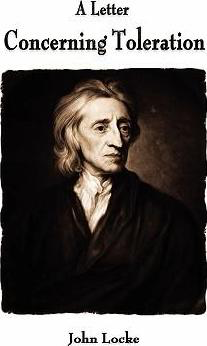
3:16: What about the modes with pain or pleasure?
JL: These are called the passions. Pleasure in the thought of the future we call hope. Pleasure in the near approach pleasure we call joy. Anything affecting us with pleasure we call good. Anything presenting us with pain present or absent we call hatred. The uneasiness we feel upon the absence of anything that might affect us with pleasure we call desire. The uneasiness of mind upon a good lost we call sorrow. The uneasiness of the thought of future pain we call fear. The uneasiness of a good we desire but others obtain we call envy. If such good relates to others we call envy. The sudden uneasiness of mind on a sudden pain produced in others by another together with a certain purpose to produce pain in return we call anger. When this remains constant we call it malice. Dread of any evil inevitable or supposed so is called despair. Whatever causes pain or is likely to is called bad or evil.
3:16: What about modes coming in by sensation or reflection?
JL: They bring the ideas of power and time, eternity and infinity.
3:16: Now power is important because it links to your notion of the will doesn’t it?
JL: Yes. The idea of power is formed from our ability of stopping any idea in the revolution of ideas within us by a thought of moving bodies which is called the will.
3:16: And this is where freewill, liberty, arises doesn’t it?
JL: Yes. The power of acting or not acting according to such determination of a man’s own thought is called liberty. Liberty is the absence of all impediments that hinder acting or not acting according to the preference of his own will.
3:16: What moves the will then?
JL: That which moves the will is uneasiness.
3:16: So these are the modes of pain and pleasure. Can these motions be controlled?
JL: Yes. Such motions may be controlled by the power we have within us of omitting any action till we have considered their consequences and find them either good or evil.
3:16: So when we think about it, power is really about causation or efficiency? It’s a consequentialist theory of freewill.
JL: Yes, in fact the idea of power is the same complex idea with that of causation or efficiency derived from experience and observation in innumerable instances which surround us and perpetually strike us.
3:16: And from this we get our ideas of innocence and guilt?
JL: Yes. The acting or not acting according to the judgment upon a due and impartial consideration finds such and act or omission to be good or evil is that wherein consists innocence. Not suspending such action until we have considered it as we might do is called guilt.
3:16: Well I guess we need to know what do you mean by person John?
JL: The body and the soul go into the making of a man. Consciousness makes personal identity. As I am taking the word 'person' as a forensic term, appropriating actions and their merit. We must here take notice what the word 'I' is applied to, which in this case is the man only. And the same man being presumed to be the same person, 'I' is easily but mistakenly here supposed to stand for the same person.
3:16: Is the self a person?
JL: Yes. Person, as I take it, is the name for this self. Wherever a man finds what he calls himself, there, I think, another may say is the same person.
3:16: And according to you a person is a unit of accountability? It's a forensic term?
JL: Yes, something capable of a law, and happiness and misery.
3:16: You talk of fields of concernment and this idea of concernment seems fundamental to your understanding of person – more so even than responsibility. What do you mean by field of concernment? Is it about having interests, concerns?
JL: Yes, such as our pleasure or pain, that is, happiness or misery, beyond which we have no concernment, either of knowing or being.
3:16: So as persons it’s only actions we’re concerned about that count as actions we’re responsible for? So consciousness is very important?
JL: Personal identity depends on the same consciousness.
3:16: So what’s consciousness?
JL: The perception of what passes in a man’s mind. It’s that which you think in…
3:16: So we’re conscious of ourselves – one’s soul and body?
JL: Yes.
3:16: So consciousness covers not just actions and experiences but one’s body too?
JL: Our bodies, all whose particles, whilst vitally united to this same thinking conscious self so that we feel when they are touched and are affected by, and conscious of good or harm that happens to them, are part of ourselves, that is, our thinking, conscious self. Thus the limbs of his body are to every one a part of himself; he sympathises and is concerned for them. Cut off his hand , and therefore separate it from that consciousness, we had of its heat, cold and other affections, and it is no longer a part of that which is himself. Thinking consists in being conscious that one thinks. Consciousness unites existences and actions into the same person.
3:16: So every bit of us that we’re conscious of is a part of us?
JL: Everyone finds that, while comprehended under his consciousness , the little finger is as much a part of himself as what is most so. As I said, any part of our bodies vitally united to that which is conscious in us makes a part of our selves: but upon separation from the vital union by which that consciousness is communicated, that which is the moment since was part of ourselves is now no more so part of another man’s self is a part of me: and it is not impossible but in a little time may become a real part of another person.
3:16: So what constitutes our personhood is whatever we’re immediately conscious of and concerned about. Is consciousness just the immediate experience we are having right now, at any one moment?
JL: No, consciousness, as far as ever it can be extended , should it be to ages past, unites existences, and actions, very remote in time, into the same person. That with which the consciousness of this present thinking can join it self, makes the same person, and is one self with it.
3:16: So consciousness is whatever we experience from the inside, so to speak, and with a sense of immediacy. You sound like Husserl.
JL: I know not Mr Husserl but I would like to read him.
3:16: So being a person is being conscious of things we’re immediately concerned with? So things I can’t remember, and body parts that I’ve lost (like all my cells over a number of years) aren’t part of my person?
JL: Yes, because its consciousness that makes personal identity. Whatever past actions it cannot reconcile or appropriate to the present self – to itself in the present – by consciousness , it can be no more concerned in, than if they had never been done. Anything united to the present thinking being by a consciousness of former actions makes also a part of the same self, which is the same both then and now.
3:16: Are you like Sartre in that consciousness is just mental goings on immediately given to you without any attached awareness of oneself? Or Leibniz when he comments that you equate consciousness with a sense of ‘I’?
JL: Yes, consciousness is inseparable from thinking and, as it seems to me, essential to it: it being impossible for anyone to perceive without perceiving that he does perceive. When we see, hear, smell, taste, feel, meditate or will anything, we know that we do so. Our own existence is known to us by a certainty yet higher than our senses can give us of the existence of other things, and that is internal perception, a self-consciousness or intuition. I don’t know Mr Sartre - is he a friend of Mr Husserl?
3:16: Er, kind of. So do we always know when we are thinking?
JL: Yes. Thinking consists in being conscious that one thinks., like hunger consists in that very sensation. A person can consider itself as itself.
3:16: Is consciousness memory?
JL: No no no. The issue is concernment. If it be possible that the soul can whilst the body is sleeping have its thinking , enjoyments, and concerns, its pleasure or pain apart, which the man is not conscious of nor partakes in; then it is certain that Socrates asleep and Socrates awake is not the same person; but his soul when he sleeps, and Socrates the man consisting of body and soul when he is waking, are two persons: since waking Socrates has no knowledge of, or concernment for that happiness, or misery of his soul which it enjoys alone by itself whilst he sleeps, without perceiving anything of it; no more than he has for the happiness or misery of a man in the Indies, whom he knows not. For if we take wholly away all consciousness of our actions and sensations, especially of pleasure and pain, and the concernment that accompanies it, it will be hard to know wherein to place personal identity.
3:16: Is concernment always attached to consciousness when we’re considering personhood?
JL: Yes. As I said before Richard, a person is that self conscious thinking thing which is sensible or conscious of pleasure and pain, capable of happiness and misery, and so is concerned, Richard, concerned for itself as far as that consciousness extends. Concernment is an unavoidable concomitant of consciousness.
3:16: So no self without concernment and consciousness.
JL: Quite.
3:16: Very Buddhist! A person for you is quite a fine-grained thing isn’t it because it only includes those things I’m consciously concerned about – so I may retain consciousness and concern for one item from the past and not thousands of other items – and so that item is part of my self, the others not. Is that right?
JL: Yes. If there be any part of existence of an immaterial substance’s existence I cannot upon recollection join with that present consciousness whereby I am now a self, it is in that part of its existence no more now my self than any other immaterial being.
3:16: What else is there alongside concernment entailing consciousness to make up a person – for after all, a fox would have that and we wouldn’t call a fox a person.
JL: Our capacity to treat the idea of a past action with the same consciousness it had of it at first, which depends on the capacity to consider oneself as oneself, the same same thinking being at different times and places.
3:16: Couldn’t a fox do that?
JL: Not in the sense that it extends itself beyond present conscious existence only by consciousness - whereby it becomes concerned and accountable; owns and imputes to itself past actions just upon the same ground and for the same reasons as it does the present.
3:16: Ah, so that’s why you say consciousness is a mode of self concern.
JL: Yes.
3:16: The identity conditions for a person aren’t the same as those for a human being are they then?
JL: Of course not - consciousness is all that matters because consciousness is that that makes everyone to be what he calls self and in this alone consists personal identity. The same consciousness makes a man be himself to himself.
3:16: So if I changed 100% of my body parts (which we materialists believe happens periodically throughout a human life, and Star Trek imagines as a mode of transport) I’d be the same person so long as my consciousness remained the same?
JL: Yes. Never heard of this Star Trek. Sounds good though.
3:16: And if I changed 100% of my immaterial parts (if I had any – something like a Cartesian soul, say, or was a David Chalmers Virtual Reality consciousness) and my consciousness stayed the same I’d be the same person?
JL: Yes. Although I don't know this Mr Chalmers either.
3:16: So is self distinct from any substance based view of identity? Does self continues across time independently of substances – materialist or immaterialist?
JL: It must be allowed that if the same consciousness - which has been shown to be quite a different thing from the same numerical figure or motion in body – can be transferred from one thinking substance to another it will be possible that two thinking substances may make but one person. For the same consciousness being preserved whether in the same or different substances, the personal identity is preserved.
3:16: So a person could hop from one substance to another, from this body to that, this soul to that, and remain intact, like the evil self in the film It Follows?
JL: Ah, I saw that. Great film. Yes. It will be hard for us to determine how far the consciousness of past actions is annexed to any individual agent so that another can’t possibly have it. It will be difficult to conclude from the nature of things why one intelligent substance may not have represented to it, as done by itself, what it never did, and was perhaps done by some other agent.
3:16: Wow. Heavy. Now by calling this a forensic account of persons we’re saying that you're using your idea of persons and self to answer the question- which of the many past actions and experiences of the living, experiencing human being that we have been since birth are still part of the forensic person we now are, in such a way that we are still answerable to them aren’t we? Your person has to be a fit person of responsibility doesn't it?
JL: That’s why I say consciousness makes personal identity.
3:16: So if I’m resurrected and judged by God on the last day in a completely new body there’s no problem because it’s my forensic self that’s up for judgment?
JL: Yes. The sentence shall be justified by the consciousness all persons shall have, that they themselves, in what body soever they appear or what substances whatsoever that consciousness adheres to, are the same that committed those actions, and deserve punishment for them. And thus may we be able without any difficulty to conceive the same person at the resurrection, though in a body not exactly in make or parts the same which he had here, the same consciousness going with the soul that inhabits it.
3:16: Ok. Moving on. What are substances?
JL: Ideas of substances are either separate or collective. Separate substances are the union or co-existence of several simple ideas in one and the same place – this is all the notion we have of substance.
3:16: Can you give us some examples just to be clear about this?
JL: The union of the idea of extension, solidity, figure and the disposition to produce colour in us is what we call Body. The union of the ideas of perception, reflecting, choosing and self motion we call spirit.
3:16: Ok, but do we know what grounds these properties and powers?
JL: (Shrugs) It is to us equally unintelligible.
3:16: There are collective substances aren’t there?
JL: Yes, when several substances are collected into the same representation such as an army, triumph, procession etc.
3:16: So in your ontology we have ideas, modes and substances and you also have relations don’t you?
JL: Yes. Relations are the comparing of several ideas whether simple or of modes or substances one with another, and considering the denominations which may arise from such comparison.
3:16: These relations are to do with dependences in nature according to you aren’t they?
JL: Well the order of nature is such that there is a dependence of things one upon another so do they convey to the mind an idea of such dependence and whatever notion we have of such dependence of things one on the other or of the connection or repugnance of ideas one to the other gives us the idea of relation. So, for example, all words that refer to a certain standard, either of duration or size, are relative terms – things such as old, young, strong, weak and so forth.
3:16: So which are the most important relations for you?
JL: Well, the most noted relations are: cause and effect; identity and diversity.
3:16: Can you give us an example of what you mean by identity and diversity? I presume this is about the relation of wholes to parts?
JL: Quite. So we get identity of bodies from the sameness of parts producing the same simple idea in a beholder - or the identity of vegetables from the same organization of parts whether or not they exactly consist of the same matter; moral relations; the relations of our ideas themselves – or the identity of animals from the same organization of parts and the same constant and continued ‘individual’ life – and the identity of person, mind or spirit as far as we can apprehend it from the same consciousness of ideas, powers and actions whether that consciousness be universal or partial, continued or renewed.
3:16: Ok.
JL: We also have moral relations which arises from comparing our actions to a threefold rule.
3:16: Threefold?
JL: The laws of the country, the laws of opinion and reputation and finally the law of God which is twofold, being both natural and revealed.
3:16: What is this law of nature?
JL: The rule which reason immediately discovers to us touching the fitness or conveniency of any action.
3:16: And what’s the revealed law?
JL: It’s a more full and explicit discovery of our duty on more explicit motives and authoritative sanctions.
3:16: Ok. Any more relations?
JL: Yes Richard. Relations of our ideas themselves relating either to the perceptions of our mind, to the things they’re supposed to represent or the casual associated relations of such ideas one to another in the mind. Ideas relating to perception can be clear or confused; ideas relating to things they’re supposed to represent can be real or fantastical, adequate or inadequate, true or false. All simple ideas are real because they’re produced by the operation of things in us and mixed modes are all real being a combination made by the mind so long as the coexistence of such ideas be only possible. Ideas of substances are real if we have ever found the simple ideas of which they consist come into our mind necessarily and so are united from actual experience – otherside they are fantastical.
3:16: So what are adequate ideas?
JL: They are ideas which perfectly represent archetypes or patterns to which the mind refers. So all simple ideas are adequate universally as are mixed modes which don’t refer to archetypes or patters but to a certain combination made in the mind.
3:16: And what are relatively inadequate ideas then?
JL: Those that refer to a supposed combination made in the minds of other persons signified under the same name. Ideas inadequate universally to us are all our ideas of substances because they have reference to patterns whose real essence we don’t know.
3:16: So what do you mean by true and false ideas?
JL: True ideas are conformable to real existence, false that have no such conformity. Relative to others our ideas are said to be true when they are conformable to the ideas signified under the same name by others but this is obviously an hypothetical and precarious truth, in other words, an acquiescence of opinion.
3:16: So these last to opinions are related I presume to things like custom and habit, which can be compatible with each other but nevertheless idiotic rubbish, like beliefs in Q Anon?
JL: Putting together ideas according to their apparent or probable agreement is reasoning. But the connecting of independent ideas by custom which have no visible or perceived just connection in themselves is an infirmity of the mind that lacks a name unless it be called false association or habitual prejudice as where a man has an imagination of an infallible man, by education or custom. Madness connects repugnant ideas. When this is done in compliance with received authority it is a weakness, error, a depravity of the mind. Idiocy is the want of power to abstract or compound ideas. Disorders of the imagination are the compounding of them chimerically without just ground. In extreme this is lunacy or frenzy. Folly is the abstracting and compounding of ideas weakly, defectively and inconsequently. Practical folly is acting without sufficient reason. Prepossession is where we assume right principles without duly regarding the reasons why they ought to be entertained. Vice is conduct contrary to the persuasion of a man’s mind or to his apprehension of what he ought to do or avoid. These all arise from the false associations of ideas which by habit and custom make gradually a perpetual however unnatural connection in the mind so that they perpetually appear together in the same gang and as much affect our reasonings, opinions and judgments as if they were naturally united. Their origination from our passions and their reflex agency upon them results in them often strongly influencing our practice.
3:16: Language is one of the ways of course that we communicate these ideas isn’t it?
JL: Men were not created to live solitary and independently of each other nor to be confined to their sensations and the simple ideas accompanying them or directly resulting from them but for mutual intercourse and society and the full improvement of the human faculties tending to the highest ultimate happiness both of the individual and of the species and so it was necessary that we were furnished with a ready method of communicating such ideas. To this end is necessary the power to articulate utterance or speech with a consciousness of the ideas annexed to the particular sounds so uttered and the sense of hearing and for complete and accurate communication the faculty of writing.
3:16: So for you language is the connection of sounds to meaning?
JL: I put it like this: Language is nothing else but the connection of such sounds to ideas in order primarily to make the ideas of one man understood by another and secondarily to enable him to preserve, multiply and exalt to general principles of science speculative or practical ideas which he cultivates within his own breast.
3:16: Abstract terms are an important part of language aren’t they?
JL: Because several objects excite in us the same idea names are made general or abstract to excite in the hearer such an idea as is framed in the mind of the speaker and meant to be conveyed from whatever particular object such idea was formed in the mind of the speaker. For in connecting the sound with the idea, the mind has no further consideration than of the idea itself as it stands in the mind of the speaker by whatsoever thing from without it was formed in him; and were it otherwise it were impossible to register the particularity of things and to accommodate names in them since hardly any man has the same idea from the same particular object which another has.
3:16: And another reason for this use of abstracts or general names is our ability in language to add another without end?
JL: Well, if names were as particular as things such signs should become altogether useless since the particularity of things is infinite and therefore would incumber the mind with infinite things which could not be remembered nor would be of use for communication.
3:16: What are the most important aspects to consider about language then?
JL: Four things: the expression of independent ideas; the expression of the connection and repugnancy of ideas; the imperfections of language; and finally the abuse of it.
3:16: Are definitions of words possible then?
JL: Simple ideas can’t be defined since definition is resolving the thing to be defined into its most simple ideas. But complex modes can be defined. And simple modes too, being the manner in which these simple ideas are combined and therefore the mind may limit and ascertain such precise combination. The names of mixed modes are arbitrarily made in the mind for the ends of civil life. The names of substances stand for the precise collection of simple ideas in the mind of the speaker, which is the nominal essence though it has a relation to something without which are patterns or archetypes of such nominal essence.
3:16: What about real essences? Can we grasp these?
JL: Of course not. The real essence is the internal primary constitution of parts for which properties depend and is perfectly unknown and therefore not expressed in the name.
3:16: You mentioned the imperfections of language. What are these?
JL: With simple ideas the connection is made between the name and the idea and therefore here we are not very liable to mistakes since the ideas are regularly produced from things without and the same ideas are formed in all men having the same organs, and there is no difference between the archetypes and the idea – the object without regularly creating the idea in the mind to which the name is annexed. But the names of mixed modes are often subject to perplexity and confusion because there is often great variety of combination and because we can’t go to the archetypes to correct mistakes. When dealing with the names of substances there are liable to be great imperfections because we can’t know the real constitution of things and therefore cannot understand what precise combination of simple ideas is co-existent which have all the same right to be made a part of the nominal essence.
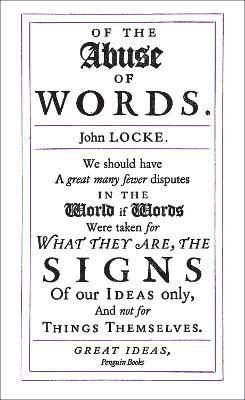
3:16: And what about the abuse of words?
JL: We do this in several ways by using words without ideas, by varying the combination of ideas and keeping the same name, by using different names for the same combination, by referring words to an assumed reality of things and not to our own ideas, which is putting together such ideas in our minds as united in things without us as have not come in with any evidence of their being actually coexistent. And finally, by affected obscurity.
3:16: So you’ve told us that ideas are the materials of knowledge and language is how we convey them, so what else do we need to consider?
JL: How our ideas are put together and compared one with another. Which means considering knowledge and opinion, reason and error and faith and enthusiasm.
3:16: Ok, so what is knowledge?
JL: Knowledge is the comparing of two or more ideas and viewing their connection or agreement, repugnancy or disagreement. It can be intuitive – where the agreement or repugnancy appears upon view - or demonstrative, when it doesn’t and comes by comparison with some intermediate idea.
3:16: And you have classes of such agreement or disagreement don’t you?
JL: There are four sorts: of identity or diversity; of relation; of coexistence and of real existence. Identity is known by intuition.
3:16: Can you give an example?
JL: Yes – so, for example, we know by view that one colour is not another.
3:16: Ah I see.
JL: Ideas of relation are known by demonstration. Coexistence and existence is seldom known from the general comparison of our ideas for since we do not know the general substances of things we don’t know what ideas of them are compatible with each other and therefore we have no knowledge from the general consideration of our ideas but from trial, observation and experience only.
3:16: What about real existence?
JL: Here we have knowledge of ourselves by intuition or immediate perception, and of God by demonstration.
3:16: By demonstration?
JL: As thus: the absence of being cannot produce being: ergo something eternal. Absence of thought cannot produce thought: we think; ergo there is thought without beginning: eternal thought we call God. We begin to think; ergo, not from matter, where there is no thought; ergo, the mind created by eternal thought. And whatever could produce a Being to see and feel must be presumed as a less effect of his power to produce the things felt and seen.
3:16: What about the being of other things?
JL: It’s done by sensation.
3:16: Ok. So what else can we say about knowledge?
JL: We can say something about the extent, reality and universality of our knowledge.
3:16: Go for it. What’s the extent of our knowledge?
JL: It goes no further than we have ideas and no further than we can find an agreement or disagreement by comparing them with intermediate ideas.
3:16: And is our knowledge real knowledge of the world?
JL: Though our knowledge is only of our ideas yet those ideas having relation to objects without us it is for some measure real. All simple modes are the product of the operation of things themselves upon our own minds so all our knowledge about them must be real knowledge. Of course mixed modes are intended to have relation to ideas in our own mind and therefore our knowledge concerning them has no reality but upon the supposition of the existence of such modes. Our knowledge of substances is so far real as we put together coexistent in the same place and that come into our minds thus united but as far as we refer them to the real internal constitution of things so far our ideas of substances are not real because the ir constitutions are unknown to us.
3:16: What about truth then?
JL: Truth in the mind is the inward perception of the agreement or disagreement of our ideas, together with a like perception of the past, present or future existence of things themselves, so conjoined or separated in nature.
3:16: So for you truth involves certainty of knowledge and certainty of existence too?
JL: Yes. Exactly Richard. And of course there’s truth in words which is conjoining the signs of the ideas together as the ideas themselves lie in the mind of the speaker. And truth of ideas is the conformity they bear to real existence.
3:16: Is knowledge universal?
JL: In simple ideas where the real and nominal essence is the same then yes, all knowledge is general and universal because there is no difference in these ideas from whatsoever objects they were formed. In mixed modes too our knowledge is general and universal. When it comes to substances our knowledge as far as it relates to their essence is all particular since it goes no further than our trial and observation concerning the bodies before us. We don’t know the real and internal constitution of things so we cannot rank them otherwise than hypothetically into any general sorts or classes and so we aren’t capable of any universal knowledge with respect to them.
3:16: But if I say that gold is yellow, fusible, fixed etc, that the whole is equal to all its parts taken together that whatever is, is and that it is impossible for the same thing to be and not to be, for example, aren’t I making universal and general statements about the essence of gold?
JL: You’re there talking about the nominal essence of substances and yes it's a universal proposition but these are only identical and trifling and signify no more than the several ideas we comprehend under that name. This sort of thing is of little use for the invention of knowledge although they may serve to silence those who wrangle or wantonly oppose known and manifest truths. Mind you Richard those propositions of this kind which relate to substances have a nearer affinity to real knowledge as they represent when rightly framed the result of experience in so far as the actual trial has extended and enable us from some one known property to infer others though as we advance in experimental knowledge the universality of certain supposed properties gradually diminishes and our definition becomes more limited.
3:16: But are you then saying it’s wrong to say a sparrow is a bird, for example?
JL: Not at all. The combination of simple ideas which the word ‘bird’ stands for is to be found in that particular thing we call a sparrow. I hope I have nowhere said there is no such sort of creature in nature as birds! What I do say is that there are real constitutions in things from whence these simple ideas flow which we observed combined in them. And that there are real distinctions and differences in those real constitutions, one from another, whereby we think them, or name them or no but that whereby we distinguish and rank particular substances into sorts or genera or species is not those real essences or internal constitutions but such combinations of simple ideas we observe in them.
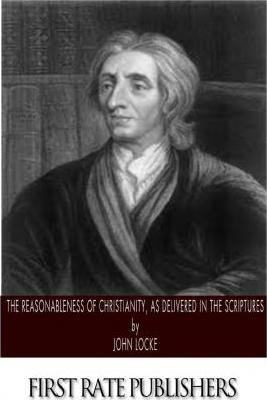
3:16: So this is very much the scientific process you’re using here to define knowledge and how we might invent new knowledge, and this is truly a very different approach to the Scholastic approach and draws on your knowledge of medicine and biology as well as your familiarity with the great scientists of your day doesn’t it?
JL: Yes Richard. It is from a multitude of trials indissolubility might have been supposed a universal property of gold til on further trial an exception appeared and after some other exceptions. A certain specific gravity seems to have a yet nearer approximation to the unknown essence of gold while by the extreme difficulty of fusibility it is found distinctively differenced from that of metal.
3:16: What role is there for probability in knowledge and truth?
JL: Probability is where the connection or agreement, or repugnancy or disagreement is not found from the intuition or view of the ideas themselves or from the intuition of any idea with which they are compared which, by such intermediate view, shows such connection or repugnancy but is found only by observation and experience, which could not be found from any view or justification of the ideas in our own minds, and is therefore strong or weak according to the number and constancy of instances. For example we know that meat nourishes not from any general idea of the internal constitution of meat and of the animals but because we have found it true from experience.
3:16: So our knowledge of substances relies on probabilities to a large extent then?
JL: All our knowledge, Richard, touching on substances goes no further than probability.
3:16: Is testimony a source of knowledge?
JL: Yes in that we also judge by the sight, observation and experience of others – this is called testimony – and there are eight things about the witness or witnesses we should consider here – their number, integrity, skill, intent, consistency, contrary testimonies, verisimilitude and information . Then there’s the means of information possessed by witnesses which is either simple or circumstantial, either of which is direct or traditional. 3:16: Is reason the way we discover connections between ideas?
JL: Yes, it's the faculty of mind that discovers connections and repugnancies by finding, arranging, and comparing the immediate ideas and thence drawing inferences.
3:16: And when do errors occur?
JL: It arises from making casual associations of ideas by passion, habit, custom, or reliance on the blind authority of others.
3:16: But you believe in God. Why isn’t that just blind opinion and prejudice?
JL: Well faith is the belief of any truth coming from God. Original revelation is the immediate delivery of truth from God into the mind of men which is done in a manner to us inconceivable.
3:16: How is your faith different from what you call ‘enthusiasm’?
JL: Enthusiasm is an opinion that our fancies and imagination are revelations from God.
3:16: Ok. Let’s now move to your views on morality and government. Morality first – do you think morality can be known in the same way as physics can?
JL: I thought I saw that morality might be demonstratively made out yet whether I am able to make it out is another question. Everyone could not have demonstrated what Mr Newton’s book has shown to be demonstrable.
3:16: Can you summarise for us your account of human freedom?
JL: I’ll try. Volition is the ordering of some action by thought. Uneasiness determines the will. Will must be distinguished from desire. The greater good in view barely considered doesn’t determine the will. The joys of heaven are often neglected. Desire determines the will. Desire is an uneasiness. The greatest present uneasiness usually determines the will as is evident in experience because uneasiness is part of the unhappiness which has first to be removed on our way to happiness, or because uneasiness alone is present. The uneasiness of other passions have their share with desire. Happiness alone moves desire. All absent good is not desired because it isn’t necessary to our happiness. The greatest uneasiness does not always determine the will because we can suspend the execution of our desires. Hopefully this short scheme may perhaps give you much light into my present hypothesis.
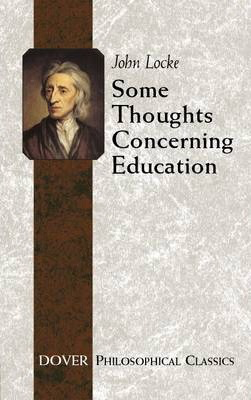
3:16: Thanks. I like what you have to say about educating children. Can you sketch your thinking here because it helps give us a picture of your ideas about liberty and how we should understand people.
JL: Well, I am so much for recreation that I would as much as possible have all of they do be made so. I think recreation as necessary as their food and that nothing can be recreation which does not delight. I would have the greatest part of their time left to them without restraint to divert themselves any way they think best be it free from vicious actions or such as may introduce vicious habits. And therefore if they should ask to play it could be no more interpreted a want of fancy than if they asked for victuals when hungry though where the matter is well ordered they will never need to do that. For when they have either done what their Governor thinks enough in any application to what is usually made their business or are perceived to be tired with it they should of course be dismissed to their innocent diversions without ever being put to ask for it. So I am for the full liberty of diversion as much as you can be.
3:16: You’re not advocating anarchy though?
JL: They should not yet be permitted to let loose their desires or importunities for what they fancy. Children are very apt to cover what they see those above them in age have or do, to have and do alike, especially if it be their elder brothers and sisters. They, if you allow it, will be impatient for the like and think themselves ill dealt with if they have it not. This being indulged when they are little grows up with their age and with that enlarges itself to things of greater consequence and has ruined more families in the world than one. The desires you would not have encouraged you should not permit to be spoken which is the best way for them to silence them to themselves. Children should by constant use learn to be very modest in owning their desires and careful not to ask anything of their parents but what they have reason to think their parents will approve of. The surest and easiest way is prevention for we must take the same nature to be in children that is in grown men and how often do we find men take ill to be denied what they would not have been concerned for if they had not asked?
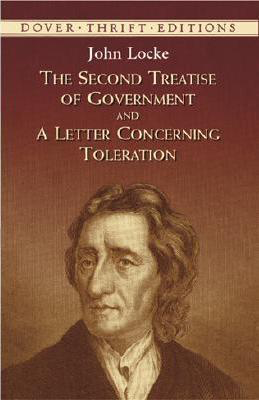
3:16: Let’s turn to your views about government. You were basically arguing against the divine right of Kings thesis put forward by Robert Filmer weren’t you? You're a revolutionary. So what’s political power according to you?
JL: Filmer’s theory is glib nonsense. He seems to have forgotten what country he was born in. Political power I take to be a right of making laws with penalties of death, and consequently all less penalties, for the regulating and preserving of property, and of employing the force of the community, in the execution of such laws, and in the defence of the common-wealth from foreign injury; and all this only for the public good.
3:16: And does the legitimacy of government depend on the consent of those governed?
JL: A government cannot be supposed the people should give any one or more of their fellow men an authority over them for any other purpose than their own preservation, or extend the limits of their jurisdiction beyond the limits of this life. All government, monarchical or other, is only from the consent of the people. The end of civil society is civil peace and prosperity but beyond the concernments of this life that is, religion, this society hath nothing to do at all.
3:16: So church and state should be separate?
JL: Yes. To settle the peace of places where there are different opinions in religion, two things are to be perfectly distinguished: religion and government and their provinces ought to be kept well distinct.
3:16: Why is divine rights of kings wrong?
JL: Because slavery is so vile and miserable an Estate of Man.
3:16: But don’t you defend slavery?
JL: Only when they are prisoners in a just war.
3:16: I’m afraid you’re being a bit naïve there but we’ll come back to that topic. What’s the role of the state of nature in your theory of government?
JL: The State of Nature has a Law of Nature to govern it, which obliges everyone, and there cannot be supposed any such subordination among us, that may authorize us to destroy one another. And remember, Richard, ’tis not every Compact that puts an end to the State of Nature between men.
3:16: Is the state of nature the same as a state of war, as Hobbes supposes?
JL: No. Declaring by word or action, not a passionate and hasty but a sedate settled design upon another mans life, puts him a state of war.
3:16: And a state of nature is governed by peace, goodwill, preservation and mutual assistance?
JL: Indeed. For where there is an authority, a power on earth, from which relief can be had by appeal, there the continuance of the state of war is excluded and the controversy is decided by that power.
3:16: So why do we need government – why not stay in the state of nature?
JL: For though the law of nature be plain and intelligible to all rational creatures; yet men, being biased by their interest, as well as ignorant for want of study of it, are not apt to allow of it as a law binding to them in the application of it to their particular cases.
3:16: So if we don’t have a monarch what kind of government are you advocating?
JL: Wherever, therefore, any number of men so unite into one society, as to quit everyone his executive power of the law of Nature, and to resign it to the public, there, and there only, is a political or civil society. Hence it is evident that absolute monarchy, which by some men for example Hobbes, is counted the only government in the world, is indeed inconsistent with civil society, and so can be no form of civil government at all.
3:16: Why must everyone follow the civil law?
JL: No man in civil society can be exempted from the laws of it: for if any man may do what he thinks fit, and there be no appeal on earth, for redress or security against any harm he shall do; I ask, whether he be not perfectly still in the state of nature, and so can be no part or member of that civil society; unless any one will say, the state of nature and civil society are one and the same thing, which I have never yet found any one so great a patron of anarchy as to affirm.
3:16: All premised on an implicit consent?
JL: Yes. Men being, as has been said, by nature, all free, equal and independent, no one can be put out of this estate, and subjected to the political power of another, without his own consent. As usurpation is the exercise of power, which another hath a right to; so tyranny is the exercise of power beyond right, which no body can have a right to. And this is making use of the power any one has in his hands, not for the good of those who are under it, but for his own private separate advantage. When the governor, however entitled, makes not the law, but his will, the rule; and his commands and actions are not directed to the preservation of the properties of his people, but the satisfaction of his own ambition, revenge, covetousness, or any other irregular passion.
3:16: You’re deeply religious so why don’t you support governments who claim their authority from religion?
JL: Because no peace and security among mankind—let alone common friendship—can ever exist as long as people think that governments get their authority from God and that religion is to be propagated by force of arms. Look Richard, the civil government can give no new right to the church, nor the church to the civil government. So that, whether the magistrate join himself to any church, or separate from it, the church remains always as it was before — a free and voluntary society. It neither requires the power of the sword by the magistrate’s coming to it, nor does it lose the right of instruction and excommunication by his going from it. This is the fundamental and immutable right of a spontaneous society — that it has power to remove any of its members who transgress the rules of its institution; but it cannot, by the accession of any new members, acquire any right of jurisdiction over those that are not joined with it.
3:16: What’s the role of property in your theory of government?
JL: Every man has a property in his own person. This nobody has a right to, but himself. The great and chief end, therefore, of men uniting into commonwealths, and putting themselves under government, is the preservation of their property; to which in the state of Nature there are many things wanting.
3:16: So when we leave our state of nature whatever we mix our labour with becomes our own property?
JL: Yes at least where there is enough, and as good left in common for others.
3:16: So private property makes it more valuable?
JL: Yes.
3:16: Does the history of civil society start like this for you: that our first society first arises from sexual desire, whereby men and women reproduce, have children, employ servants and then gain slaves from just wars?
JL: Yes. Aristotle thought this too. And Grotius and Pufendorf.
3:16: And now we’ve matured so we get commonwealth societies with power delegated by the people. Is this why kingship is incompatible with such societies?
JL: To think that men are so foolish that they take care to avoid what mischiefs may be done them by pole-cats, or foxes, but are content, nay think it safety, to be devoured by lions.
3:16: Lions being monarchs I take it?
JL: Duh!
3:16: Doesn’t your emphasis on law actually contradict your other emphasis on freedom?
JL: The end of law is not to abolish or restrain, but to preserve and enlarge freedom: for in all the states of created beings capable of laws, where there is no law, there is no freedom: for liberty is, to be free from restraint and violence from others; which cannot be, where there is no law: but freedom is not, as we are told, a liberty for every man to do what he lists: (for who could be free, when every other man's humour might domineer over him?) but a liberty to dispose, and order as he lists, his person, actions, possessions, and his whole property, within the allowance of those laws under which he is, and therein not to be subject to the arbitrary will of another, but freely follow his own.
3:16: But doesn’t your enemy Filmer agree when he says freedom is “a liberty for every one to do what he lists, to live as he pleases, and not to be tied by any laws.”?
JL: No. Freedom of men under government is to have a standing rule to live by, common to every one of that society, and made by the legislative power erected in it; a liberty to follow my own will in all things, where the rule prescribes not; and not to be subject to the inconstant, uncertain, unknown, arbitrary will of another man; as freedom of nature is to be under no other restraint but the law of nature.
3:16: You have strong words to say about colonialism don’t you? You argue that the original inhabitants of the Americas, for example, had the right to their land and possessions and the European immigrants robbed them don’t you?
JL: Indeed Richard. No inhabitants of Europe, Africa or Asia could produce a better title to their possessions. Their right was founded in nature and Providence; it was the free and liberal gift of heaven to them which no foreigner could claim any pretention to invade. Their lands they held by the first of all tenures, that of defending them with their lives. Charters were granted to European intruders from kings who claimed them on the foot of prior discovery but neither the foreigners who granted away those lands nor the patentees who accepted their grants and by fraud or force acquired possession could plead any title to them founded on natural right.
3:16: So their claims of prior discovery were empty?
JL: Absolutely. Prior discovery might give foreigners a kind of right to lands unoccupied or possessions relinquished but neither of these was the case with American territories. Nations who lived by hunting required a large extent of territory and though some had more, others less extensive districts to which they laid claim yet each tribe knew its particular division and the whole coast was occupied by them.
3:16: And you think the tribes were right to defend their lands against Europeans with violence?
JL: Yes. They were hostilely invaded, cruelly treated and barbarously butchered by European aggressors who had no other method of colouring and vindicating their own conduct but that of blackening the characters of these poor natives.
3:16: What’s your attitude towards slavery?
JL: It had been carried on by Genoese traders with a patent from Charles the fifth containing an exclusive right of carrying Africans from the Portuguese settlements in Africa to America and the West Indies when the English nation had not yet engaged in the iniquitous traffic. Slavery like this is one of the most odious and unnatural branches of trade the sordid and avaricious mind of mortals ever invented.
3:16: How did the English get involved?
JL: John Hawkins went to Sierra Leon where he began trafficking. He found some means of giving them a charming description of the country to which he was bound: the unsuspicious Africans listened to him with apparent joy and satisfaction and seemed remarkably fond of his European trinkets, food and clothes.
3:16: So he duped them with stories of a land of milk and honey etc and great opportunities for them?
JL: He assured them of kind usage and great kindness yes. But in the night before his departure his Africans were attacked by a large body from another quarter and Hawkins sent his men to assist his slaves and having surrounded the assailants carried a number of them on board as prisoners of war. During the passage he treated the prisoners of war in a different manner from his volunteers. Upon his arrival the Spaniards purchased all at the same rate , considered them as slaves of the same condition and consequently treated all alike.
3:16: So despite Hawkins trying to turn it into something humane it was horrible.
JL: Yes, hence arose that horrid and inhuman practice dragging Africans into slavery which has since been so pursued in defiance of every principle of justice and religion.
3:16: You still think Hawkins not a terrible guy?
JL: Well though Hawkins was the first Englishman who engaged in this traffic so repugnant to the spirit of the English constitution; though he made use of such fraudulent arts even in the first method of conducting it, as few men can have an assurance to vindicate; yet as he was a man of prudence and humanity he was no ways chargeable with those diabolical abuses which have crept in this trade.
3:16: But there’s no defence for slavery is there?
JL: According to the current mode in which it has been conducted we must confess it is a difficult matter to conceive a single argument in its defence. It is contrary to all laws of nature and nations to entice, inveigle and compel such multitudes of human creatures who never injured us from their native land and dispose of them like flocks of sheep and cattle to the highest bidder. And what completes the cruelty and injustice of the traffic, to consign them over to ignorance, barbarism and perpetual slavery.
3:16: You see slavery as motivated by greed don’t you?
JL: Insatiable avarice, yes Richard.
3:16: You don’t think Europeans superior to others do you?
JL: Of course not Richard. Nature has given the people of one continent no superiority over those of another; the advantages of Europeans were the effects only of art and improvement.
3:16: So basically you think capitalism is to blame for this don’t you, not racism?
JL: Yes. Every candid and impartial man must confess that it is atrocious and unjustifiable in every light in which it can be viewed and turns merchants into a band of robbers and trade into atrocious acts of fraud and violence.
3:16: I’d have thought the colonialists who left to live in America because of persecution from the king from England would have been very democratic and supportive of individual political freedoms but you say this wasn’t the case don’t you?
JL: Yes, given that they had what they valued most of anything in the world, liberty of conscience, it might reasonably have been expected that those immigrants who made New England their asylum from what they deemed civil tyranny and ecclesiastical persecution would have guarded against every degree of oppression and persecution in that form of government they were about to establish among themselves. This however was far from the case. Some of their first laws favour of a degree of persecutions and intolerance unknown in the most despotic governments of Europe and those who fled from persecution became the most bitter persecutors. We may challenge the annals of any nation to produce a code of laws more intolerant than that of the first settlers in New England. Unlimited obedience was enjoined to the authority of the magistrate. However incredible it may appear, blind fanatics became public legislators and those who were unable to endure tyranny in England became the most insupportable tyrants in America.
3:16: It’s a warning to all of us. Finally, can you recommend five books to us that will take us further into your philosophical world?
JL: 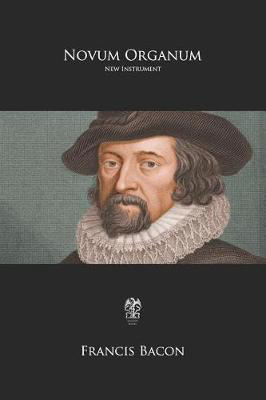
Bacon,
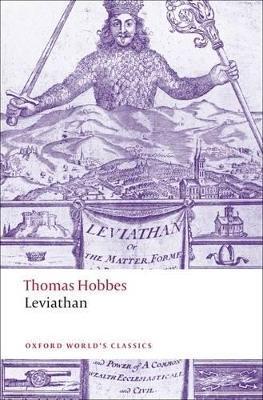
Hobbes,
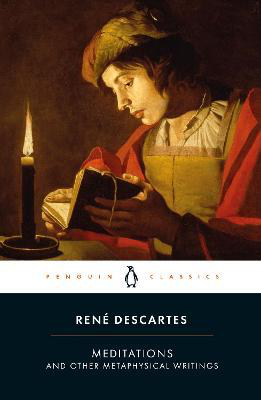
Descartes,
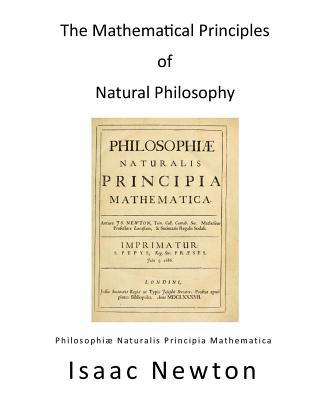
Newton’s Principia Mathematica Philosophiae Naturalis,
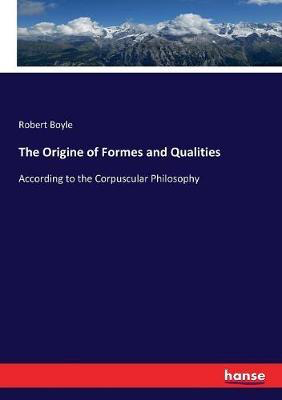
Boyle’s The Origin of Forms and Qualities
Other Interviews: Newton, Berkeley, Hobbes, Locke, Cudworth, Hume, Leibniz, Leporin Erxleben, Fichte, Schiller, Herder, Kierkegaard, Schelling, Kant, Dilthey, Marx, Descartes, Hegel, Schopenhauer, Nietzsche
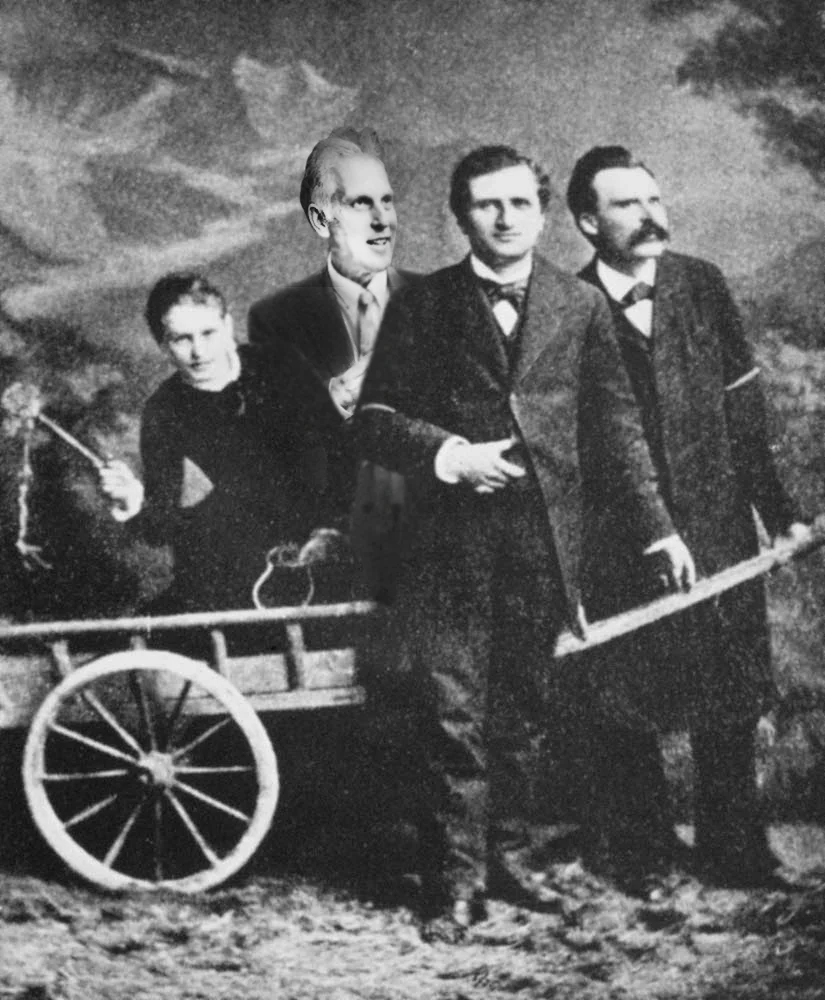
About the Author
Richard Marshall is still biding his time.